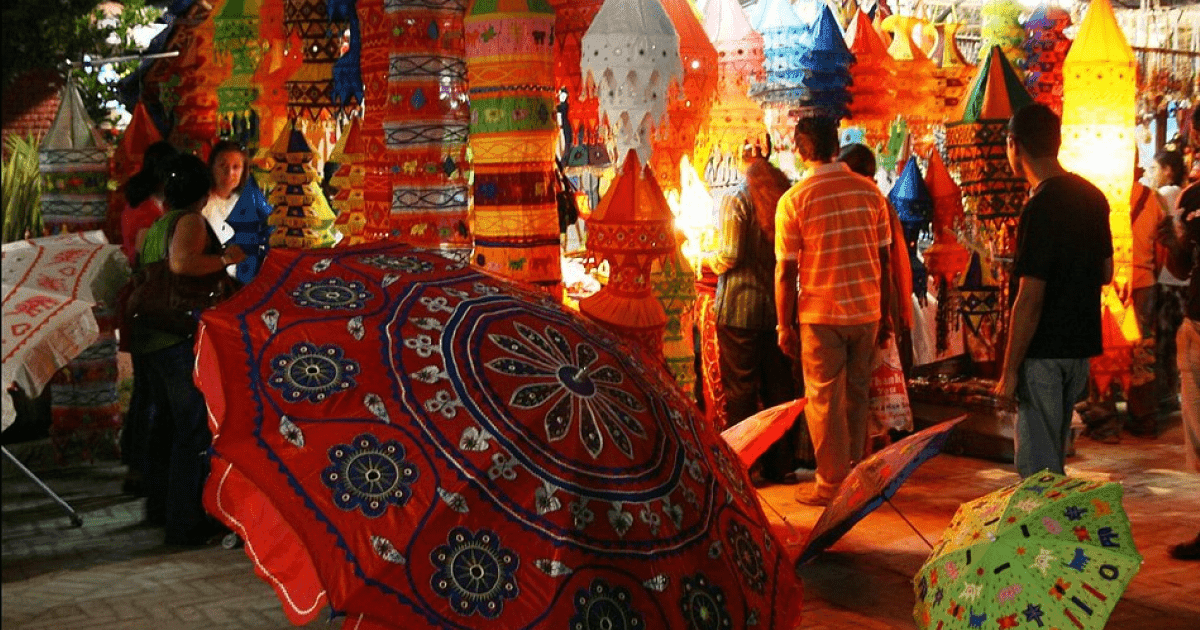


India's first family app where the past, present and future align! Discover your roots, join or create communities and unravel your future with iMeUsWe!
Copyright © 2025. All rights reserved.
Privacy PolicyTerms of ServiceCookie Settings
When planning a family excursion, the quest for activities that engage and captivate each member, irrespective of age, becomes paramount. In this pursuit, India emerges as a veritable treasure trove, offering a diverse array of experiences tailored to varied interests and preferences. These engaging activities not only promise entertainment and stimulation but also serve as conduits for intergenerational bonding and learning, weaving a mosaic of memories enriched by the cultural heritage of India. In the enchanting realm of Indian Heritage Discovery, families embark on a transformative journey, delving into the vibrant mosaic of traditions and history that define this captivating land.

When planning a family trip, it's essential to consider activities that will engage and captivate every member, regardless of age. India offers a diverse range of experiences that cater to different interests and preferences. Engaging activities not only ensure that each family member remains entertained and stimulated but also provide an opportunity for intergenerational bonding and learning. One of the most significant advantages of engaging activities is the chance to create lasting memories and by participating in hands-on experiences and exploring the cultural heritage of India together, families can forge stronger connections and develop a deeper appreciation for the country's rich history. Engaging activities also serve as a valuable educational tool, allowing children and adults alike to gain insights into different customs, traditions, and ways of life. Moreover, engaging activities can spark curiosity and ignite a sense of wonder in children and by exposing them to new experiences, such as visiting historical sites or attending cultural performances, families can foster a love for exploration and a thirst for knowledge. These activities not only entertain but also educate, making the trip a transformative experience for the whole family.
India has a rich heritage of art and craft traditions that have been passed down through generations. Engaging in these traditional practices provides a unique opportunity for families to learn about India's artistic legacy and develop new skills. From pottery and painting to block printing and embroidery, there are numerous art forms that families can explore together. Participating in art and craft workshops allows families to engage with local artisans and learn about their techniques and creative processes. Children can unleash their creativity and develop their artistic abilities, while adults can embrace the therapeutic benefits of these activities. Whether it's creating intricate rangoli designs or trying their hand at Madhubani painting, families can create beautiful keepsakes that will serve as reminders of their time in India. In addition to workshops, families can also visit art galleries and craft emporiums to admire and purchase traditional Indian artwork. These spaces not only showcase the talent of Indian artisans but also provide insights into the cultural significance and symbolism behind different art forms and by immersing themselves in the world of Indian arts and crafts, families can gain a deeper understanding of the country's aesthetic traditions.
India is home to a wealth of historical sites and landmarks that offer families a glimpse into the country's majestic past. Visiting historical sites allows families to witness the grandeur and craftsmanship of ancient civilisations. Exploring the intricate carvings, majestic palaces, and sprawling forts transports families back in time, allowing them to envision the lives of those who lived in these ancient cities. To enhance the experience, families can hire local guides who can share fascinating stories and legends associated with each historical site. These anecdotes bring history to life and make the visit more engaging for both children and adults. Families can also participate in interactive activities, such as treasure hunts or role-playing games, to make the exploration even more enjoyable.

For families seeking a more immersive experience, cultural exchange programmes provide an opportunity to live with local families and gain a deeper understanding of Indian culture. These programmes often involve staying in traditional homestays or guesthouses, where families can interact with locals and learn about their way of life. Participating in cultural exchange programmes allows families to experience the warmth and hospitality of Indian families firsthand. They can learn about traditional customs, participate in daily activities, and forge meaningful connections with their host families. These programmes also offer families a chance to contribute to the community by participating in volunteer activities. Whether it's teaching English to local children or assisting in environmental conservation projects, families can make a positive impact while immersing themselves in Indian culture.
The journey of Indian heritage discovery doesn't end when families return home and by incorporating elements of Indian culture into their everyday lives, families can continue to embrace the richness and diversity they experienced during their trip. One way to incorporate Indian heritage is by exploring Indian literature and mythology. Families can read books and stories that are rooted in Indian culture, introducing children to the fascinating world of Indian mythology and folklore. This not only nurtures a love for reading but also helps children develop a broader perspective and an appreciation for different cultural narratives. Families can also introduce Indian cuisine into their regular meal plans, experimenting with recipes they learned during their trip or trying new dishes inspired by Indian flavours. This allows them to continue to savour the tastes and aromas of India and encourages a diverse culinary palate.
Conclusion
India offers families a rich cultural journey, from exploring ancient monuments to traditional art workshops. These activities foster intergenerational bonding and learning, creating lasting memories. Families deepen their understanding of India's diverse heritage and continue to incorporate its elements into their lives upon returning home, echoing the vibrant spirit of India for generations to come.
Embrace the richness of Indian heritage as a family and embark on a journey of discovery with iMeUsWe app.
Available on Play store and App store.
Did you find this insightful?